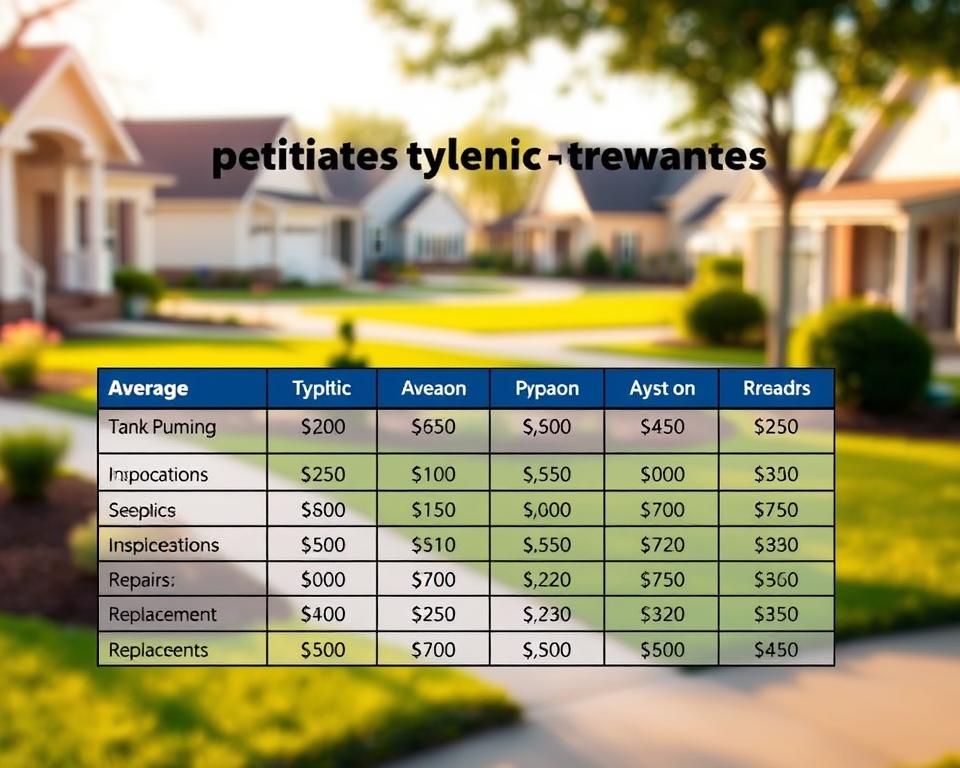Septic Tank Pump Change-Out: The Essential Guide
Do you know the result of a Septic Tank Pump failure? For many, it’s a event that leads to major anxiety and surprise outlays. Realizing the call for timely replacement is essential in maintaining a efficient and hygienic Septic system. By sticking with regular check-ups, including prompt repair needs, you increase your system’s life while sidestepping pricey emergencies. Companies like All in Sanitation fulfil a crucial function in keeping your Septic tank operating smoothly. This guide aims to provide a clear insight of Septic Tank Pump replacement, including warning signs and care advice for emergency septic service.
Key Conclusions
- Knowing the job of a Septic Tank Pump is important for homeowners.
- On-time Septic Tank Pump replacement can save you money in the long run.
- Consistent care and cleaning are key to extending the lifespan of your Septic system.
- Skilled support can properly handle Septic system Pump repair and maintenance.
- Detecting preliminary clues of Pump failure can ward off expensive fixes.
Septic System Basics
A Septic system is vital for homes without access to city sewer lines. It handles and eliminates household wastewater properly. The Septic tank is integral to this system’s functioning, serving an important role in the process.
The Septic tank accepts sewage, splitting solids from liquids and scum. This segregation is critical for efficient wastewater treatment. The treated water then travels to the drain field, where it gets further filtration by the soil, shielding groundwater.
Understanding how your Septic system runs can prolong its life and efficiency. Ongoing service is essential for the Septic tank and the system’s overall well-being. Homeowners must learn about their system’s particulars to protect the environment and sidestep pricey renovation.
What is a Septic Tank?
A Septic tank is a in-ground, leak-proof container critical for household waste management systems. It’s vital to grasp the Septic tank’s main duty: it processes sewage waste storage by processing it. This setup operates by distinguishing solids from liquids, supporting basic wastewater treatment and sanitation.
Its operation hinges on naturally occurring microorganisms that break down waste. In locales without centralized sewage treatment, Septic tanks are irreplaceable. They retain sewage long enough for solids to drop, forming sludge. Meanwhile, liquid effluent moves upward, preparing for filtration in the drainage field.
Keeping a Septic tank in good condition is critical for its performance and durability. Consistent servicing is central to preventing issues like backups and overflows. These situations can lead to pricey restorations and pose dangers to nature. In essence, Septic tanks are indispensable in keeping things clean and safe, especially in rural areas.

Signs You Need a Septic Tank Pump Replacement
Homeowners should be aware of signs that their Septic tank may need a new Pump. A noticeable sign is experiencing foul odors around drains or in the garden, indicating a system failure. Facing frequent or major sewage backups in your home calls for immediate action to prevent worse issues.
Experiencing slow draining drains points to a potential problem. Household fixtures that clear slowly might mean a Pump failure or a clog needing an expert’s evaluation. Additionally, areas of excessively lush vegetation in your yard could mean trouble; this shows waste leakage, leading to overflow concerns.
To ward off big and costly fixes, homeowners should handle these symptoms quickly. Conducting consistent inspections and maintenance is essential for the Septic system’s best function.
| Signs | Description |
|---|---|
| Foul Odors | Unpleasant smells around drains or yard pointing to system failure. |
| Sewage Backup | Frequent backups in sinks or toilets pointing to potential Pump issues. |
| Slow Draining Drains | Fixtures draining slowly can indicate blockages or Pump malfunction. |
| Lush Vegetation | Areas of dense greenery near the tank indicating possible overflow. |
When to Change Your Pump
Understanding the timing for replacing your Septic Pump is essential for a well-functioning Septic system. It’s smart to have your system assessed every three years. A skilled technician during these visits gives information into how well your system performs.
Usually, cleaning the Septic tank becomes essential every five years. However, households with high demand or a big family might need more frequent servicing. Diligent service of your Septic system prevents high restoration costs and extends its lifespan. Specialists in Septic services can craft a maintenance plan that matches your demand and the specifics of your system.
Remaining prepared with Septic Pump replacements ensures your system’s optimal functioning and defends your home investment. Regular inspections and upkeep prevent sudden bills. They support efficient system flow.
Pump Replacement Pricing
The Septic Pump replacement cost changes, shaped by many variables. Homeowners should budget for paying from $500 to $1,300 for a new Pump. This price bracket represents diversity in the kind of Pump and material needs. It’s necessary to account for the Pump and Septic tank servicing costs for the setup and required inspections.
Costs can also climb due to complexities within the Septic system or area labor costs. Necessary repairs, triggered by wear or harm, could drive up the total outlay. In calculating financial estimates for Septic services, factor in charges for routine care, assessments, and any unexpected crises since these factors greatly help with maintaining your system’s longevity.
Planning financially for periodic Septic service minimizes the impact of surprise expenses. Early budgeting supports property owners in covering expenses connected with the Pump’s replacement and system upkeep.
Process of Septic Tank Pump Replacement
The Septic Tank Pump replacement kicks off with a comprehensive inspection of the system. This opening check finds any additional issues aside from the Pump itself. The faulty Pump is then removed properly and effectively.
Installing the new Pump involves meticulous focus to connection security, making sure no leaks. Specialist firms ensure the installation is accurately completed, reducing future issues.
The final step is a detailed finish inspection. It confirms proper functioning, giving homeowners peace of mind. With skilled support, the process is simple, causing minimal disruption.
Septic Tank Pump Installation Best Practices
When tackling Septic Pump installation, it’s critical to stick to best practices. Hiring experienced experts secures compliance with local regulations. They capably conduct the installation complexities, preventing errors common in inexperienced setups.
Keeping to exacting Septic service standards is key for harmonious performance. Choosing suitable parts and durable materials extends the Pump’s life and improves the Septic system’s efficiency. This detailed care elevates maintenance and overall performance longevity.
- Go with a reputable service provider who is experienced in Septic systems.
- Make certain that all necessary permits and inspections are in place before work starts.
- Select Pumps that match the specific requirements of your Septic system.
- Include a pre-installation inspection to check site conditions.
- Keep in mind the layout and flow of the Septic system during installation.
Following these guidelines ensures a smooth installation process. It also secures a robust system for proper sewage treatment.
Caring for Your Septic System
Heading off high bills with your Septic system starts with periodic upkeep. By observing simple guidelines, homeowners can preserve their Septic systems’ efficiency. Arranging regular checks is a wise step. It finds and tackle problems before they become severe.
It’s also vital to refrain from flushing undesirable things down the drain. Grease, chemicals, and items that don’t break down can harm your system. Cutting water use during busy periods can also improve system handling.
Arranging specialist cleanings with entities like All in Sanitation is crucial for Septic health. Understanding what you ought and ought not do with your Septic tank can materially increase its lifespan and protect your household environment.
Cleaning Service Basics
Consistent Septic tank cleaning is vital for your system’s ongoing function and efficiency. The process includes sludge removal, inspecting for damage, and making sure everything operates properly. These steps are vital to support reliable function and avoid expensive fixes.
A comprehensive Septic maintenance plan should include regular inspections and cleanings that fit your specific usage. Homeowners must appreciate the importance of regular upkeep to prevent issues like backups. Employing specialists ensures the cleaning is detailed, supporting a hygienic home.
| Service Type | Frequency | Benefits |
|---|---|---|
| Pumping | Every 3-5 years | Avoids system failure and backups |
| Inspection | Annually | Detects potential issues early |
| Maintenance | As needed | Prolongs the lifespan of the system |
Spending on routine Septic tank cleaning lowers spending and prolongs your system’s life. It maintains trouble-free waste handling. Taking action now safeguards your Septic system’s efficiency for the future.
Picking a Pump Replacement Provider
Locating a reputable Septic service provider is vital when replacing a Septic Tank Pump. Begin by verifying their certifications and licenses. Such credentials prove the company’s compliance with industry norms, vital for a trouble-free replacement process.
Delving into customer reviews is also a vital move. Past feedback shows service quality, guiding the filtering process. Choose companies with a steady track record of high standards and customer support.
Consider recommendations from your community too. Insights from friends and neighbors can highlight top-notch Septic services in your vicinity. Always get detailed instances of their satisfactory experiences with these services.
Finally, review the service scope and cost from various firms. A thorough analysis provides exceptional service and maximizes the value of your expenditure. Following these guidelines guarantees your Septic system receives the premium care it merits.
DIY vs. Professional Service
Homeowners often find themselves pondering whether to manage Septic issues alone or call in experts. DIY Septic maintenance is attractive for minor fixes and upkeep. For example, observing tank volume or clearing drainage lines can be done on your own.
Conversely, recognizing when to hire Septic professionals is essential for serious problems. In-depth repair, replacing systems, or serious blockages need specific equipment and skills. Without the correct equipment, attempts to solve these problems can result in contamination and extensive damage.
Determining between DIY and professional help calls for judging the job’s complexity. Presented below are examples demonstrating when DIY is suitable and when professional Septic services are essential:
| Situation | DIY Feasibility | Need for Professional Help |
|---|---|---|
| Routine maintenance (e.g., tank level checks) | Yes | No |
| Minor clogs in drain fields | Yes | No |
| Major Septic Tank Pump failure | No | Yes |
| Complex sewage backflow issues | No | Yes |
| Regular system inspections | Possible DIY | Yes for thorough checks |
Choosing wisely on these matters assures safety and efficiency. Opting properly protects as well as the Septic system but also prevents surprise expenses.
Conclusion
Knowing the workings of your Septic system is important for its sound handling and your home’s smooth running. Catching initial signals of issues helps avoid pricey repairs and maintains the system’s integrity. This anticipatory approach supports the environment and boosts your property value.
To maintain your Septic system in optimal condition, emphasize maintenance. This includes routine checks and on-time professional Pumping. This minimal cost secures your home’s safety and your family’s health. Your Septic system functions best with proper care.
Our team at All in Sanitation is devoted to delivering first-rate Septic care. We bring the skill necessary to guarantee your system performing at its best, defending your home investment over time. With our emphasis on quality service and trustworthiness, we’re here for your Septic maintenance needs.
